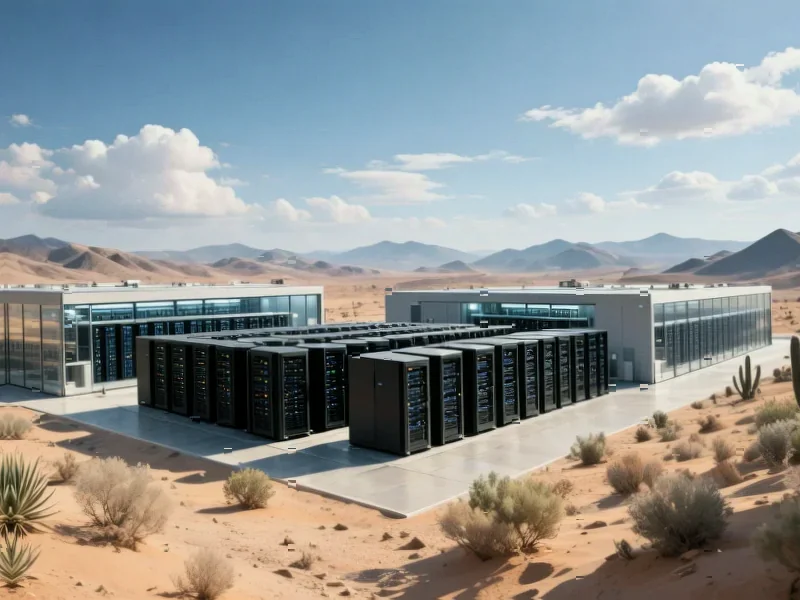According to CNBC, Saudi Aramco CEO Amin Nasser revealed the kingdom’s ambitious plan to become a global AI leader by leveraging its cheap natural gas and renewable energy. Aramco plans to acquire a significant minority stake in Humain, the national AI champion launched in May that’s majority-owned by Saudi’s sovereign wealth fund PIF. The company is targeting capital expenditures of $52-58 billion this year while boosting natural gas production by over 60% by 2030. Nasser projects oil demand will grow by 1.1-1.3 million barrels per day this year and nearly the same in 2026, driven by emerging economies. Data centers powering AI applications will consume almost four times the electricity of the global EV fleet by 2030, primarily fueled by gas and renewables.
The ultimate energy arbitrage
Here’s the thing: Saudi Arabia is playing a game that few countries can match. They’re basically taking their biggest competitive advantage – ridiculously cheap energy – and applying it to the most energy-hungry industry of the future. When the Aramco CEO says “if you want renewable, you will find the lowest cost renewable” and “if you want gas, you will find the lowest cost gas,” that’s not just corporate speak. That’s a fundamental economic advantage that could actually work.
Think about it. AI data centers are absolute power hogs, and energy costs can make or break their economics. The fact that Saudi Arabia has both cheap renewables AND cheap natural gas gives them flexibility that even tech giants would envy. They’re not betting on one energy source – they’re covering all bases. And with vast empty land available, they don’t have the NIMBY problems that plague data center development in many Western countries.
But oil isn’t going anywhere
Now here’s where it gets interesting. While they’re talking up this AI future, Aramco is still massively expanding oil and gas production. The company expects demand growth of 1.1-1.3 million barrels daily this year and similar growth in 2026. That’s not exactly the narrative you hear from climate activists.
So what’s really happening? They’re playing both sides, and honestly, it’s pretty smart. Use oil revenue to fund the energy transition and AI ambitions, while still making money from the fossil fuels that the world clearly still needs. The developing world, particularly Asia, is driving this demand growth, and Saudi Arabia isn’t about to leave that money on the table.
The Humain gamble
The investment in Humain is particularly fascinating. Creating a “national AI champion” sounds ambitious, but can Saudi Arabia really become the third biggest AI player behind only the US and China? That’s a massive leap.
We’ve seen these national champion strategies before – sometimes they work, sometimes they become expensive vanity projects. The difference here is they’re not just throwing money at the problem. They’re building on a genuine competitive advantage in energy costs. Still, becoming a global AI leader requires more than cheap electricity. It needs talent, innovation ecosystems, and regulatory frameworks that encourage experimentation.
But if anyone has the resources to make this work, it’s probably Saudi Arabia. Between the sovereign wealth fund and Aramco’s deep pockets, they can afford to take big swings. The question is whether they can build the soft infrastructure to match their energy advantages.
What this means for everyone else
This Saudi strategy could actually reshape global AI competition. If energy costs become the determining factor for where massive AI data centers get built, countries with cheap power suddenly have a huge advantage. We might see more energy-rich nations following similar playbooks.
Meanwhile, the continued growth in oil demand that Aramco is banking on suggests the energy transition will be messier and more gradual than many hope. The world still runs on fossil fuels, and emerging economies are driving that demand higher even as developed countries try to decarbonize.
Basically, Saudi Arabia is betting they can have it both ways – dominate the old energy world while building a bridge to the new one. It’s a high-stakes gamble, but with their resources and advantages, you can’t count them out.




